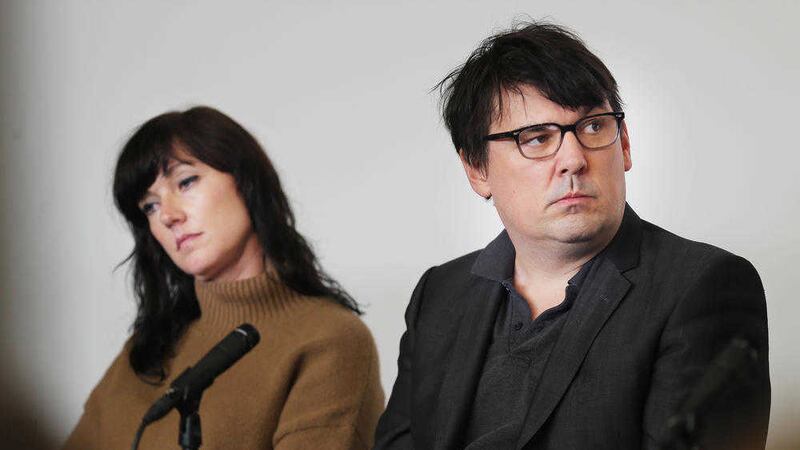The other week a small Dublin theatre put on a show of talent and beguiling oddness. ‘The Train’ wound up with the originals of some of the characters joining the cast to cheer the performance, the event it dramatised, and laughing, their younger selves. About as unlike a northern event as possible, the night also pointed up what north and south share.
‘The Train’ made a quirky musical out of a quirky political protest – that of 49 women who went from Connolly Station to Belfast and back to buy contraceptives and challenge the state to arrest them. This was May 1971, when it was illegal to sell condoms in the Republic (though not to use them, figure that out) and when the pill was available to married women only as a ‘cycle regulator.’ Other things were happening here at the time, principally for many the miserable Troubles. A jokey invasion by Dublin women went fairly unnoticed. What was it about, anyhow?
You could buy condoms across a chemist’s counter in the north – if the chemist was a Protestant, and you didn’t mind asking for them in the face of visible disapproval. Or so I’m told. As for the pill, regardless of religion some doctors prescribed it and some didn’t. A Protestant woman around then walked into her doctor’s in a Protestant village and asked him to put her on the pill because she was about to be married and didn’t want to be pregnant just yet. Aren’t you a healthy young woman, said he, away out of this.
A Catholic woman older by a decade was sent by the priest in confession to ask for the pill, because, he said, she needed a rest from one pregnancy after another. Ah now aren’t you healthy enough, said the doctor, and chased her. No heat in either exchange, just sensible men sorting out potentially silly women.
These stories come directly from the women they happened to, remembered in exactly that tone. They were told what they could and couldn’t do. Very different women in utterly different circumstances, but whether they got pregnant or not was not for them to decide.
‘Not the church, not the state, women should decide their fate’ – the 1971 Dublin protesters chanted that among other things as they arrived back in Connolly, to be met by embarrassed customs officials, flustered gardaí, and cheering, banner-waving supporters. Pills were thrown into the air, aspirins in fact because - as the protesters didn’t realise until they got there - you couldn’t actually buy the pill across a northern counter, then or now. Nobody was charged.
The law didn’t change until 1985, half-heartedly. But protest helped keep the pressure on, brought contradictions to the surface.
Progress still took forever, at a terrible cost. Religious objections to contraception and refusal to legalise provision of abortion still keep a less cheerful and silent traffic going, in the women and girls who trek to England, search the web, receive secret packages.
There is a woman or girl near you who has had an abortion and is never going to tell you because you might judge her.
The Republic is a very different place now, a pretty different society to this one. Those ‘Justin Casey’ condom machines in pubs started appearing there first, and became unnoticed soon after.
The delighted welcome for the same sex marriage referendum is impossible to imagine here. Though push optimism to the limit about the number and disposition of those liberal unionists said to be turned off existing unionist parties, and might the relaxation of Catholic attitudes towards homosexuality plus Protestant secularism take a vote cross the line? Supposing our political parties allowed a referendum.
Abortion, as Gloria Steinem still campaigning at 81 said recently, will be the last issue to fall. She was talking as congressional hearings focus, thanks to right wing republicans, on right to access not only abortion but also contraception. Patriarchy, as she puts it, is about controlling reproduction. Which means controlling women at their most vulnerable.
‘Patriarchy’ too high-flown? Try this instead. The PSNI website has a section headed ‘Recorded crime with a domestic abuse motivation.’ The first item is homicide. It also lists violent deaths with paramilitary connections, and compared to other agencies is inclined to under-count. But the balance is clear. From 2004-13 the police list 62 deaths with a ‘domestic abuse motivation.’ From 2006-15 Troubles-type killings come to 22.
P.S. Women’s Aid say that of all domestic violence, over 30 per cent starts during pregnancy.








